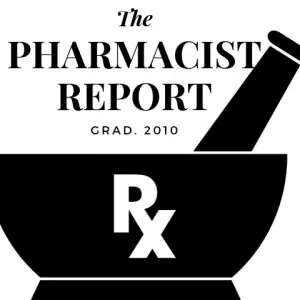Are you confused about whether to pursue nurse anesthetist or pharmacist as a career option? If yes, this post is for you. Here we have compared different factors like job description, duties, responsibilities, salary, skills required, etc. of both these. This will help you decide which one is the right career option for you.
Nurse anesthetists and pharmacists both are healthcare professionals; however, their duties, responsibilities, salary, skills requirements, etc. are different. Knowing these factors would give you an idea about which career field is for you.

Nurse Anesthetist
Nurse anesthetists administer anesthesia and provide care to patients before, during, and after surgical, therapeutic, obstetrical, and diagnostic procedures. Your duties as a certified registered nurse anesthetist may vary depending on where you work. As a nurse anesthetist, you will be responsible for giving due attention to patients from the start of surgery to the recovery. You will be working closely with patients, their families, and other medical staff.
CRNAs work in different medical settings, including physicians’ offices, general medical & surgical hospitals, speciality hospitals, dental offices, and public health centers.
This is one of the highest paying healthcare jobs out there. Apart from this, the job growth of CRNA (Certified Registered Nurse Anesthetists) is expected 26% between the years 2018 and 2028. Let’s take a look at the duties and responsibilities of CRNAs:
Duties & Responsibilities
- Administer anesthesia during medical procedures and monitor patients during recovery
- Conduct patient assessments
- Educating patients about their surgery and recovery
- Adjusting anesthesia levels during surgery
- Working with other medical staff
These are some significant duties and responsibilities nurse anesthetists need to go through.
Education requirements & qualifications
To become a nurse anesthetist, you need to fulfill specific eligibility requirements. You need to fulfill education requirements, licensure requirements, and other qualifications. First of all, you need to earn a BSN (bachelor of science in nursing). After BSN, you need to complete MSN (master of science in nursing).
The next step in becoming a CRNA is obtaining an RN (registered nurse) licensure. Then, you need to gain specializations while working as an RN. After that, you need to take admission to an accredited nurse anesthesia program.
The next step is getting the DNAP (Doctor of Nursing Practice in Anesthesia) degree. After that, you need to get certification from NBCRNA (National Board of Certification and Recertification for Nurse Anesthetist). After that, you need to obtain a Nurse Practitioner State licensure. Once you graduate from an accredited program, pass the certification exam, and obtain licensure, you will be all set to look for a job.
Salary
Salary is the crucial factor to consider when it comes to deciding whether the nurse anesthetist career is for you or not. The median salary of nurse anesthetists is about $174,790 a year. Top 25% make $203,730 a year, while bottom 25% make $148,110 a year.

Pharmacist
Pharmacists are also healthcare professionals. The primary duty of pharmacists is to dispense medications. This is just a primary duty and responsibility. There are many other things pharmacists are responsible for. The tasks may vary depending on the type of pharmacist you are. You can work in hospital pharmacy, retail pharmacy, ambulatory care pharmacy, consulting pharmacy, compounding pharmacy, or any other.
Apart from dispensing medications, another essential duty of pharmacists is communicating with prescribers. Communicating with prescribers will let pharmacists confirm the dosage and formulation. Pharmacists are also responsible for ensuring the safety of patients. They need to check each patients’ medication record every time they get a new or refill prescription filled. As a pharmacist, you will have direct interaction with patients. You will be guiding them and counseling them.
Duties & Responsibilities
Here are the major duties and responsibilities of pharmacists:
- Dispensing of medications
- Supervising the dispensing of medications
- Communication with prescribers in order to confirm the dosage and formulation
- Counsel patients regarding the right use of medications
- Making sure that the pharmacy complies with all local, state, and federal regulations
- Manage staff
Education requirements & qualifications
The first step on the path to becoming a pharmacist is getting a college degree. You must earn the Doctor of Pharmacy (PharmD) degree from a pharmacy program accredited by the Accreditation Council for Pharmacy Education (ACPE). It will take six years to earn this degree.
Another crucial thing in becoming a pharmacist in the United States is getting the licensure. Depending on the state, licensure requirements may vary slightly. You must pass NAPLEX (North American Pharmacist Licensure Examination) by the North Association of Boards of Pharmacy (NABP). Apart from this, most states also require candidates to pass MPJE (Multistate Pharmacy Jurisprudence Exam).
Salary
As compared to nurse anesthetists, pharmacists make less money. The salary differs based on location, experience, type of pharmacy you choose, and other factors. The average salary of pharmacists in the United States ranges between $129,958 and $146,907.

Nurse Anesthetist Or Pharmacist (Real Peoples Opinions)
We didn’t want you to only take our word for it on this matter. So we went out and scoured the internet for opinions of actual current or past students of CRNA or PharmD’s. We curated this information from different medical websites, forums and sub reddits. Nothing has been changed except any spelling or grammar where needed.
Real Opinions
1. Dread090 “If you like anesthesia become MD” – I’ll comment only on the CRNA inquiry since I was looking into that a while back. To *know* you want to do CRNA you really have to understand the route you’re considering. If you’re dead set on it then more power to you, go for it! You’re going to need your RN license, a bachelors, most pre-med science classes with A’s, 4+ years of experience in an ICU, some bomb letters of rec, and a lot of patience. There are very few CRNA schools in the country compared to med schools so that translates to high competition. In my opinion, it’s harder to get into CRNA school than medical school AND you have to put up with the nursing world BS during the journey there. Anesthesiologist generally will hate you because you’re taking their job and doing it cheaper, and that’s the problem I have with it as well. While you pay less in loans and lose less opportunity cost with CRNA (maybe)… you’re doing the SAME job as an MDA for 1/3 of the pay. Some states you need to work under an MDA where they can take some of your pay to review your charts and/or supervise you. You will not be allowed except in rare extreme cases to participate in any research, regardless if you want to or not at this point in your life. In my opinion, again, if you really like anesthesia I would say straight up do the medical school route and become and MDA for 3 times the pay, prestige, and job options.
2. CCan “CRNA all the way” – I am a RN applying to CRNA school currently and although the path does seem stressful, i personally think it is very rewarding. My father is a pharmacist, along with my two best friends. they have their pharmDs and both struggle some with jobs and how saturated the field is–not to mention that the older you get, the less they want to hire you because they have to pay you more along with there being an entire classs of pharmacists graduating from pharmD programs who you will competing with. most pharmacists do go into retail pharmacy, which will hire but a hand full. i think the actual job market for pharmacists is wayyyyy too saturated personally.
As far a nursing goes. yes, for nurse anesthesia you have to have 1 to 2 years of icu experience to even apply to school.however, you are a RN first (which is one professional career that always is in demand an has so many avenues to go into, not only seeing patients daily) and then you are an ICU nurse, which is always in very high demand (for any age). then you decide to apply to CRNA school. They CRNA salary is much higher than that of pharmacists. pharmacists graduate making $100,000-120,000 whereas CRNAs start at $160,000 with upwards pay of $200,000+. Big difference. and another thing is yes CRNAs typically work under anesthesiologists, BUT in some states they work independently. CRNAs are fighting in political arenas to be able to practice independently.
Schooling for pharmacy is 6 years total if in a pharmD program. other wise 4yrs undergrad and 3yrs of post grad.
CRNA is 4 yrs undergrad then 1-2yrs ICU experience (I will not lie.it will probably be more since most hospitals do not typically hire new grad nurses directly to the critical care areas) and then another 2-3 years (depending if you get your masters or doctoral degree). whether its a masters or doctoral, its the same pay-you can get grandfathered in afterwards just like pharmacy.
3. MyTugHadouken “Shadow both areas” – shadow both areas (clinical/retail pharmacist, and CRNA in OR). IMO working in the OR and hospital pharmacy were great. Suited my introverted personality. Being a transporter is a good start but its like looking at nurse/pharmacy health profession from the other side of the glass. Definitely recommend being a nurse assistant/tech (for ICU only) and pharmacy technician to see which field you see yourself doing for the rest of your life. You’ll probably have to shadow a CRNA. Its rare to have a position tech/assitant wandering around in the OR (but I’ve read there are some assistants at certain hospitals but none that I’ve worked offers positions like that).
I think the path to becoming a CRNA is stressful because your basically doing grunt work as a nursing student/registered nurse (In trauma/med surg/ICU floors – labels at some hospitals are intertwined) before CRNA school and academics are just as difficult by the time you get into CRNA school, BUT I believe its more rewarding. Better salary, better job market, varies by organizations that some don’t pay benefits if your getting paid near 200k a year (like per diem), and its a chill job in the OR when the patient is laying there sleeping for 1-8 hour procedure which you either stare at your cell phone/monitor meds/patient’s stats the whole time (take my experience with grain of salt, it could be different for someone else’s personal experience).
Pharmacy pathway you’ll just be in school longer because you have to take gen chem/ochem 1-2 individually which wastes time. But if you have done gen chem 1-2 then your left with 5 years predicting you get in after finishing ochem. Work as a tech in the summers or 1 day a week in pharmacy school (otpional). Everyone complains about retail especially CVS/Rite Aid/Wag/Walmart which is majority of the pharmacy industry. Hospital everyone I know enjoys it or finds it slow and boring (but thats a good thing vs retail).
If your lazy and want a sum up: RN<<pharmacist<<<CRNA imo
#’s range depending on your skillset, academics, and other variables:
CRNA Pathway: 1 yr prereq + 1-2 yrs (accelerated/traditional) + 1-4 yrs (working ICU) + 1 1/2 – 2 yrs (CRNA school)
Pharmacist Pathway: 1-2 years prereq (assuming you havent done gen/ochem) + 4 years (pharm school) + 1 yr residency (optional)
4. Sdn1977 “Many different options” – As for difficulty, I’m a phamacist. I found some aspects of my pharmacy education more difficult than others & in practice that is certainly the case. I cannot – absolutely – cannot work in a tertiary children’s facility. I can see and monitor & treat the same illnesses that I do in a hospital which treats only adults, but I know pediatrics/neonatal is not for me. However, fortunately, there are those who can. Its kind of funny – my daughter is an MSII & she is finding pharmacology & the little kinetics she’s exposed to extremely difficult & she’s a smart woman. We just have our own areas of difficulty.
As for our backgrounds….mine involved no actual bedside care. I believe as a CRNA, you must first become an RN & therefore learn bedside nursing. I may be wrong on that.
As for what we do daily – again, my job(s) are as different from the other posters here as night & day. Some here are in academics, some in retail, work staff positions in hospitals (me) while some are dops. Some like industry and others managed care.
The bottom line is – what do you want to do with your life? If you want to be an anesthesia provider….don’t go to pharmacy school. As an OR pharmacist, I interact with lots of anesthesiologists (I don’t have CRNA’s where I am) & others in the OR, but I don’t give nor do I want to give anesthesia. However….I really like those drugs – they are fascinating in how they work, what their kinetics & metabolism is, etc…but – I’d be bored to tears to give anesthesia all day. That in no way diminishes those who do – I just know myself well enough to know its not for me.
If you want to be an anesthesia provider….you need to talk with AA’s, other CRNA’s, & also consider MD/DO route. Those are the people who can help you. If you want to be a pharmacist – ask us about that. We can’t compare one to the other.
As pharmacists, we like ALL kinds of drugs & choose our careeer route based on what we find of interest as we go through school & how our lives develop.
I hope that helps a bit.
5. ILovePharm “They aren’t similar definitely shadow” – I don’t know a whole bunch about CRNA, but my sister wants to become one. From her research, she’s told me that most schools require a BS/BA and around 1-2 years of RN experience in the ICU. So…it might actually take a little longer to apply to grad school to become a CRNA. Plus, there aren’t very many schools that offer it and lots of people from all different fields are interested so it’s very competitive. (Not that pharmacy isn’t but there’s definitely less schools offering CRNA degrees) On average, they make more than pharmacists do and I’m pretty sure it’s not boring. Like pharmacy, you have to consider each patient on an individual basis and consider any possible interactions with the anesthesia. CRNAS work directly under the anesthesiologist (MD) and they administer about 65% of all anesthesia that is given out to all patients. So basically, a lot of people are dependent on your skills. There’s actually a lot of options for anesthesia too. They can work in hospital (OR, ICU mainly), with dentists, chiropractors, whatever.
However,pharmacists and CRNAS aren’t that similar, so if I were you I would shadow in both fields to see what it is that you really want to do. Both of them require a huge investment in terms of time and money.
Final Thoughts
Here we have talked about duties, responsibilities, salary, education requirements, and qualifications of nurse anesthetists and pharmacists. After considering these factors and knowing your interest, you need to choose the right career option.
Shadow both careers and dig into them as much as you can. See how their daily life is and work stresses so you can make the right career decision.

